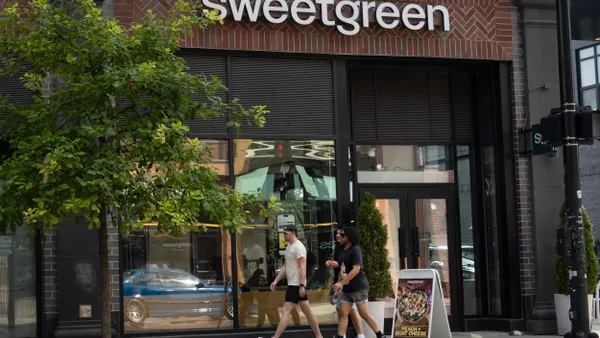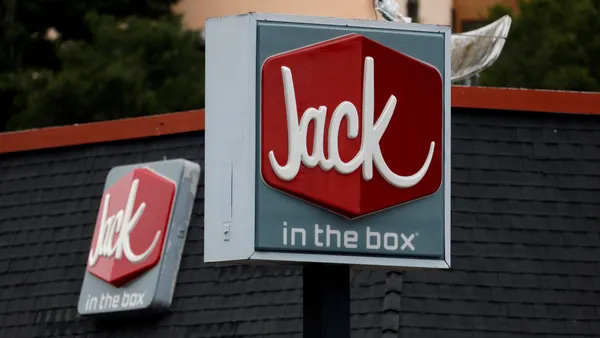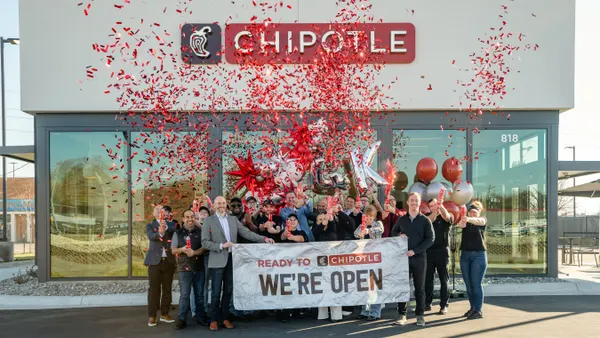Dive Brief:
- Starbucks' largest location in Southeast Asia, Starbucks Dewata Coffee Sanctuary, which opened in January, is the only location to include a 1,000-square-foot coffee farm, according to CNBC.
- The Bali location provides customers with an interactive experience with a nursery, a greenhouse, an area where customers can rake beans and digital screens where they can watch interviews of local coffee farmers. Classes also are available where visitors can pay to learn more about coffee.
- The location also will be the future site of a conference center and a restaurant, which will have its own menu and a patio area where live bands can perform.
Dive Insight:
High-end features aside, Starbucks' Bali location offers a glimpse at the coffee chain's sustainability and ethical agricultural practices. The sanctuary is meant to pay tribute to Indonesia, the fourth-largest Arabica coffee growing region in the world, according to a press release. It also provides an interactive experience where visitors can participate in coffee farming, such as de-pulping as well as washing, drying and raking green coffee beans.
The center also showcases its work with local communities, including that of Starbucks Farmer Support Center in Sumatra, an organization that conducts research to develop disease-resistant varietals to support efforts to make coffee a more sustainable agricultural product through the Sustainable Coffee Challenge. This effort is a collaboration between companies, governments, NGOs, research institutions and others to make coffee sustainable.
Starbucks is not the only brand to showcase its coffee growing efforts, however. McDonald's, which also is a partner of the Challenge, set up a pop-up replica farm in Chicago to provide a learning experience about growing coffee sustainably, according to Restaurant Business. The chain said in a statement that 84% of its U.S. McCafe coffee is sustainably sourced, bringing it on track with its goal of having all of its coffee globally coming from sustainable sources. Restaurants have also been partaking in a popular trend of growing their own produce in recent years to highlight the benefits of farm-to-table.
Sustainability and traceability have become significant areas for coffee, which has been grappling with the concepts of limiting excess in the market since 1962. Coffee uses a lot of resources, including adding to deforestation, and has environmental impacts, including polluting local waterways. McDonald's and Starbucks' commitments to ethical and sustainable growing practices are not only good for branding and marketing purposes, but also for helping keep the coffee supply chain in check allowing for coffee to continue to reach consumers in the long term.











